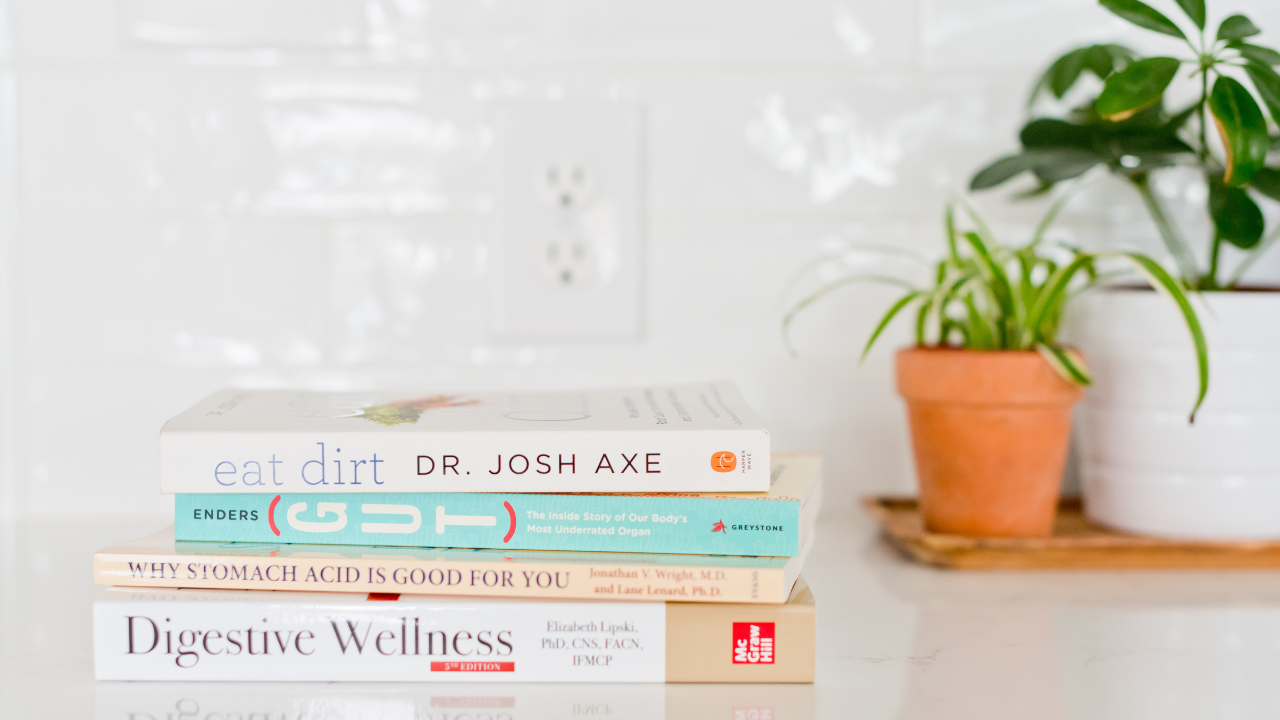Tips for Better Gut Health
Apr 02, 2024
Tips for Better Gut Health
While occasional stomachache can take the color out of a day, excessive stomach and gut health issues that become chronic are a sign of an imbalance in your digestive system. And while it may be easy to pop an antacid as a quick and easy solution to a stomach problem, taking over-the-counter stomach aides are only a band-aid to an underlying problem that can turn into a debilitating issue over time.
If you’ve been dealing with chronic gut issues, I suggest looking into healthy habits or steps you can take to protect your long-term gut health. So whether your stomach’s been bothering you recently, you have a digestive disorder such as IBS, or you just want to start on your journey to treating your gut health and yourself better, here are some tips to have a happy, healthy gut!
Sleep, Water, and Exercise Are Essential for Gut Health
You’ve most likely seen or heard about the basics of gut health. But, no matter where you are on your health journey, it’s always a good idea to start with the basics for gut health!
You’ll want to ensure you’re getting adequate sleep, hydration, and exercise. You probably see these tips everywhere, but they’re recommended for a reason! Good quality sleep, hydration, and exercise will help your overall stomach and gut health long-term. Research shows that poor sleep and digestive issues are connected. In addition, poor sleep can worsen already existing digestive issues. Drinking more water can help reduce the risk of becoming constipated and help your body to clean out the toxins from daily metabolic processes such as digesting food.
While many people associate exercise with losing weight, it’s also an essential component of health as regular exercise is anti-inflammatory activity. Therefore, regular moderate exercise such as walking, running, or yoga can help protect your gut.
What to Eat for A Healthy Gut
Next, take a look at what you’re eating. The best way to track what you’re eating is through an app or a notebook to create a food journal and write down the foods you consume daily.
On any given day, it’s best to eat a balanced combination of dietary fiber, polyphenols, prebiotics, and probiotics. Some sources of dietary fiber are fruits and veggies, nuts and seeds, beans, and whole grains. Polyphenols are plant compounds found in grapes, coffee, broccoli, berries, apples, and other plants. Prebiotics help reduces the risk of some gastrointestinal issues. It can be found in bananas, cow milk, tomatoes, some yogurts, and onions. Probiotics have bacteria that help improve gut health. They are found in yogurt and fermented foods such as kimchi or sauerkraut. The best practice for better gut health is to include some of these foods daily into your diet.
Foods To Avoid for Gut Health
If you have an existing digestive condition, avoiding or moderating your intake of certain foods that can inflame your gut may benefit you. For example, foods that are high in saturated fats, gluten, fructose, and carbonated beverages are all foods that can inflame your gut and should be eaten in moderate quantities.
Saturated fats can be found in most animal products and coconuts; gluten is a protein found in grains such as barley, wheat, triticale, and rye; and fructose is a type of sugar naturally in fruit. Depending on the sensitivity of your stomach, cutting one or more of these foods out of your diet may be an excellent step to better gut health. However, you know your gut best, so you’d be a judge of which foods you’re eating that is causing stomach upset and other gastrointestinal issues.
Regulate Your Alcohol, Smoking, and Food Portion Sizes for Your Best Gut Health
Finally, your stomach will thank you if you regulate your alcohol intake. It’s also healthier for your gut if you don’t smoke. You may also want to work on portion control to limit the amount of what you eat. This can be done by using smaller dishes. A giant plate will make you feel like you have to serve yourself more, whereas a smaller plate will look fuller with the same amount or less food on your plate. You’ll also want to consider avoiding white dinnerware, as white plates signal your brain to eat more food.
Whether you have a digestive condition, a sensitive tummy, or are just looking to improve your health, the food you eat is only part of what impacts your stomach health. Maintaining a balance of all the tips listed here will help you have a happy, healthy gut!
To find out more and receive personal guidance on restoring your gut health, check out my gut health program https://www.wholeessentialsnutrition.com/services.html or call today +1 (801) 513-3522 to book your complimentary consultation with Whole Essentials Nutrition!
DON’T MISS THIS!
START YOUR PATH TO BETTER HEALTH
Take our free Gut Health Assessment today and discover personalized steps to improve your digestion and well-being. Don’t wait—unlock the key to a healthier you now!

